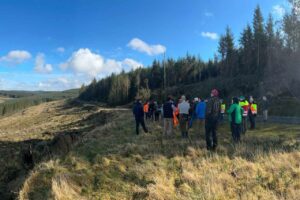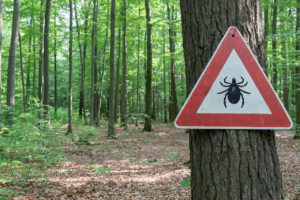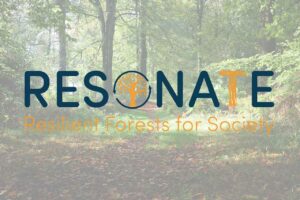Independent Panel on Forestry Releases Final Report
Report recommends ‘triple bottom line’ valuation of England’s woodlands – delivering benefits for people, nature and the green economy.
The Institute of Chartered Foresters Executive Director Shireen Chambers FICFor has hailed the final report by the Independent Panel on Forestry as an important step in changing society’s views on forestry. Shireen, who served on the panel and contributed to the final report, said:
“We need to rethink how we value our woodlands, what they can deliver for society and how we manage them to best gain the enormous benefits they provide. The Institute will be working with government to help deliver some of the recommendations in our report.”
The Independent Panel on Forestry, set up to advise the Government on the future of England’s forests and woodlands, has today (4 July) published its final report to Government.
The report calls for the benefits of England’s woods and forests to be re-valued for all the services they provide. These include not only areas for recreation, but also clean air, clean water, habitats for wildlife, locking up carbon, shading in cities – even helping in flood reduction. Wood is the raw material for timber frame buildings, furniture, flooring, fuel, and of course paper. The report highlights the ‘triple bottom line’ that forestry delivers and calls for a revival of a woodland culture that appreciates how important trees are for people, for nature and the economy.
The public forest estate is the single largest provider of outdoor leisure and recreation in England. And it is also the single largest timber producer, as well as being a vital habitat for wildlife. Research shows that these elements are producing annual returns on investment estimated at £400 million.
With over 80% of England’s woods and forests being outside of the public forest estate, they call for more of these woods and forests to be sustainably managed to create a substantial impact.
Speaking on behalf of the Panel members, The Right Reverend James Jones, Bishop of Liverpool, said:
“The Panel’s work over the last year has shown that our woodlands, managed sustainably, can offer solutions to some of the most pressing challenges facing society today. We have consulted widely, visited woods and forests around the country and read over 42,000 submissions.
There is untapped potential within England’s woodlands to create jobs, to sustain skills and livelihoods, to improve the health and wellbeing of people and to provide better and more connected places for nature.
Most importantly, the public forest estate needs to be free from the electoral cycle, for trees have long lifecycles – decisions taken now are looking to a future that is 50, or even 100, years down the line. And the bodies managing the public forest estate and advising woodland owners need to evolve and be free to become much more entrepreneurial. We recommend the expansion of woodland cover from 10% to 15% by 2060.”
The recommendations focus on maximising the social, environmental and business benefits of English woodland, so that the forestry industry will be on a more secure footing in the future. To achieve this they propose that the public forest estate should be defined in law as land held in trust for the nation so that it will always remain as a national asset.
Bishop James added:
“Government investment is now needed to kick start these changes which will repay itself many times over in terms of public benefit.”





